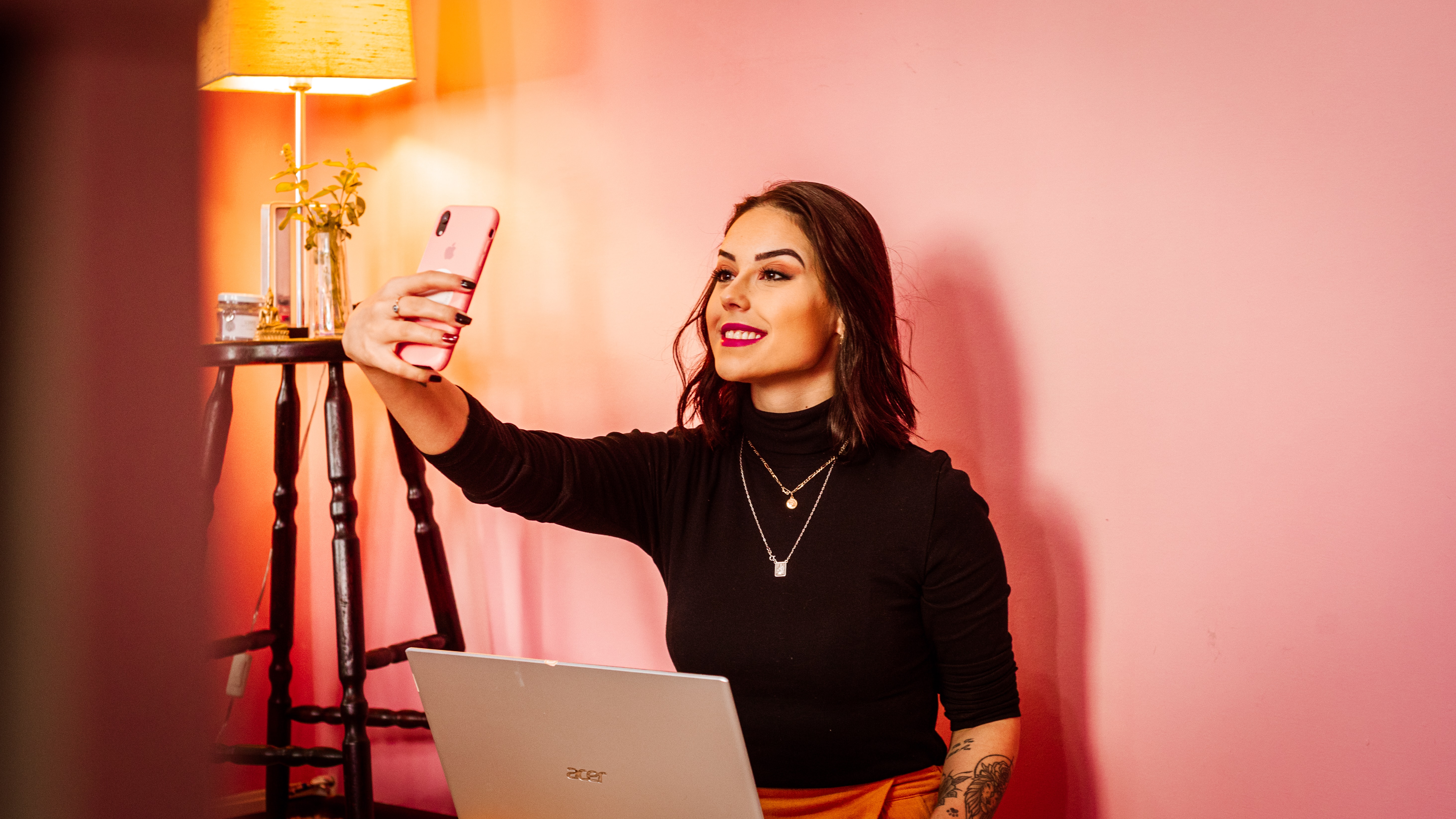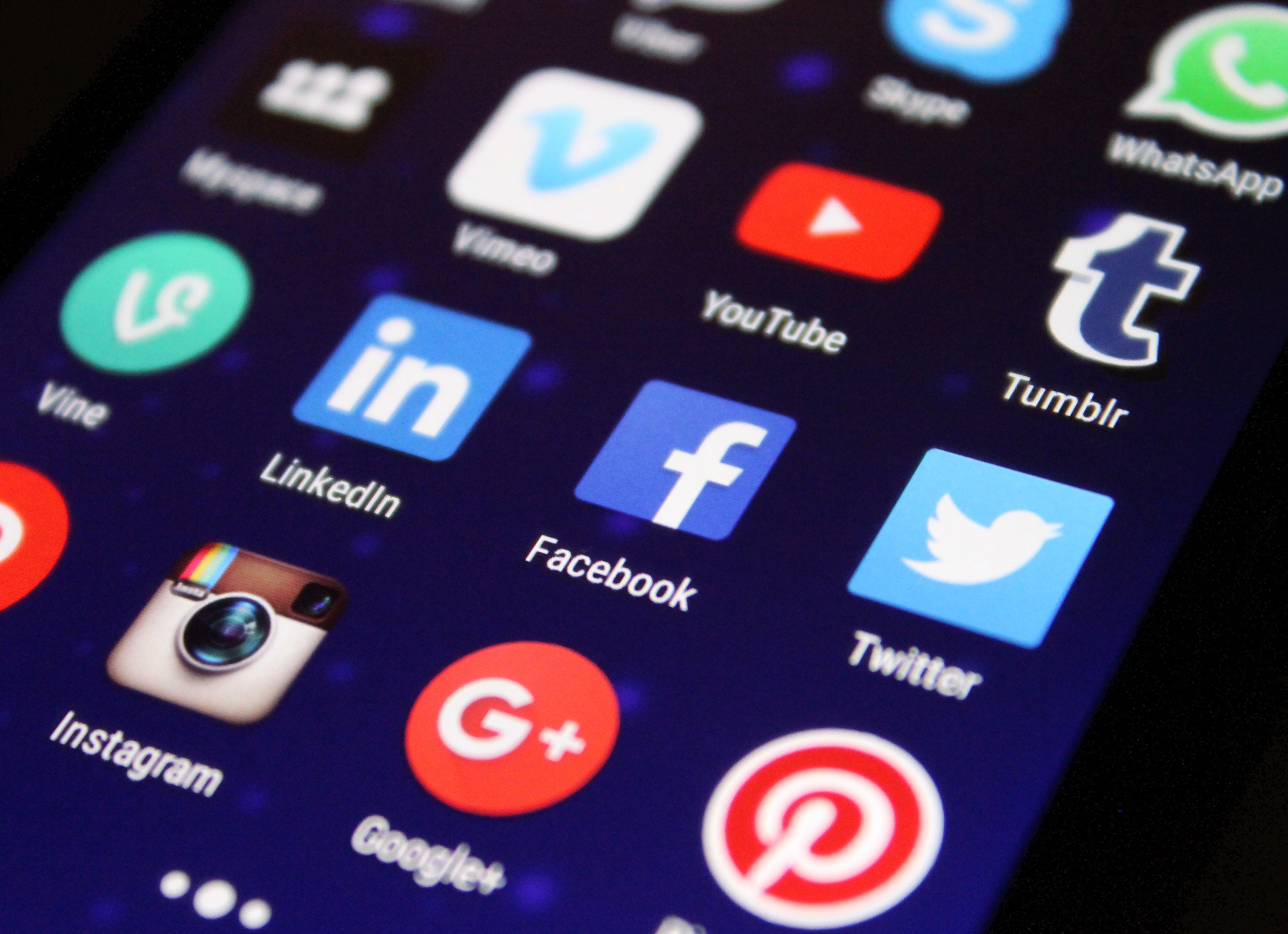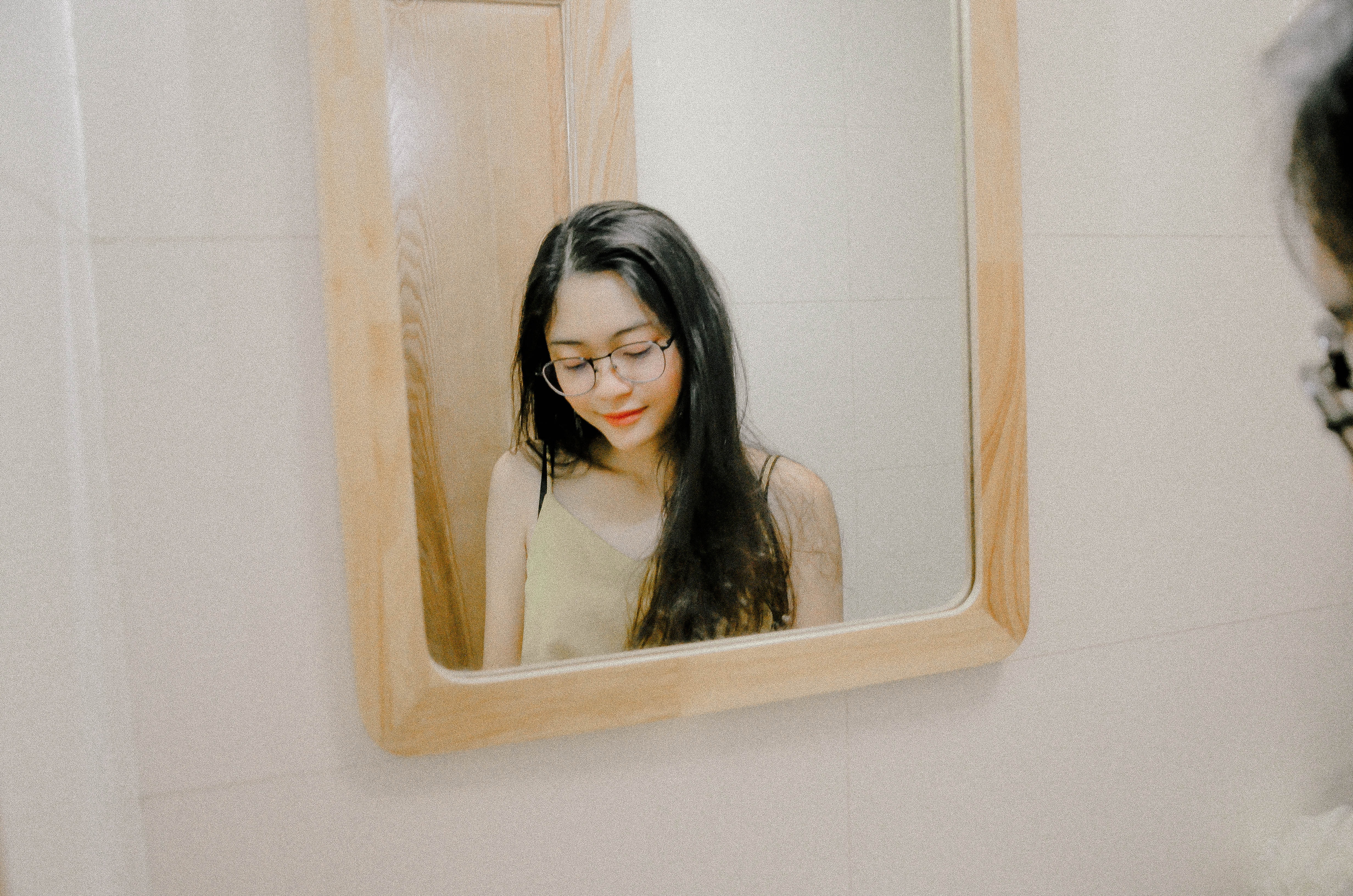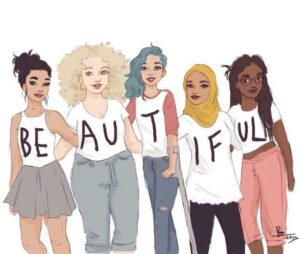10 Tips To Use Social Media In A Healthy Way
Social media platforms are spaces for people around the world to connect, share pictures, post opinions, and consume endless content. Particularly during this pandemic, social media helps us to stay connected and communicate even when we have to stay home. Much of social media involves creating an attractive profile. For instance, users can curate aesthetic Instagram content or Pinterest boards. Even though the photos, videos, words, and overall content on the social media accounts can be beautiful, the viewers may not resonate with these feelings deep down. In fact, content isn’t the only thing produced by these digital platforms. Harmful effects on body image and self-esteem have also come from the expansion of social media use.
How Does Media Affect Body Image Negatively?
From the beginning of time, society has upheld standards for people, especially women, to abide by. The media has always been a tool to promote the current beauty standards that are “in fashion.” Magazine ads, billboards, and commercials are always trying to sell products to help consumers get the most recent look.
Body Image Problems in Society
Body image problems can start at an alarmingly young age in children. For example, a 2018 study showed that these issues exist in children as young as 8 years old. Although these numbers are devastating, with the harsh beauty standards, they are not surprising. Girls and women have to deal with the constant pressure of being thin, wearing makeup, looking conventionally attractive, being void of body hair, buying anti-aging products, etc. Similarly, boys have also struggled with body image when it comes to their muscle index and height.
Lack of Inclusion in All Outlets of Media
A problem that has been evident in social media discourse, is the lack of inclusion in the media. When a consumer sees their favorite brand only post a certain body type, it can send a harmful message. This narrow depiction of body types in the media can send a clear message, that is, people’s bodies are not what society supports. If a young black girl never sees a black model in any of the ads for her favorite clothing brand, what kind of message would that send her? If a store has one-size-fits-all clothing and an interested shopper doesn’t fit into that range, how would that make them feel?
Also, social media, especially Instagram, has become a place full of advertisements and sponsorships. Honestly, these brands need to be more conscious of the messages they are putting out to the consumers. Companies need to have an expected standard, for example, make-up brands should have a variety of foundation colors to fit all customers’ skin tones. Similarly, clothing brands need to include models of all sizes to promote the idea that all bodies are beautiful. Some brands are trying to make an effort to show that they do not retouch or edit their model’s photos. This can be a positive effort in promoting appreciation of all bodies, that is, bodies with stretch marks, cellulite, vitiligo, acne, etc.
Social Media Could Negatively Affect Your Mental Health
Social media can cause negative effects on mental well-being in both teenagers and adults. Social media can cause people to compare themselves to others and lead to feelings of jealousy, inadequacy, self-hatred, and
Tips on Healthier Social Media Use
Social media is a big part of our world. As a result, it would be challenging to expect someone to totally release it’s use from their life. Many people may contemplate this decision. Social media may be their only form of connection with people they otherwise would not keep in touch with. On the other hand, some people may fear getting rid of social media because they feel like they will be bored or experience FOMO (fear of missing out) without these platforms.
Understandably, breaking free of social media can feel scary in this day and age; however, your mental health should be the most important priority in your life. If you feel like you need to take a break from going on social media platforms, feel free to do so. After all, they could be causing you distress or making you feel bad about yourself.
If you decide to limit or change the way you use social media, here are 10 tips to improve your experience on these platforms:
1. Take a Break
Certain social media platforms allow users to disable their accounts for short periods of time. If you don’t want to disable your account, you can try deleting the app from your phone until you feel ready to re-download the site. in addition, you can try and set boundaries on your screen time or use apps that manage your screen time on these accounts. If you have a problem using social media before bed, try using the blue light filter.
2. Unfollow or Mute
One way to improve your social media experience can be to unfollow people or accounts that make you feel bad about yourself. You do not need to follow any account that will produce negative effects on your self-worth or body-image. If you don’t wish to unfollow certain people, you can always try “muting” the accounts or not engaging with them. Instead of consuming this content, try following inspirational accounts or platforms that promote a message of mental health and positivity.
3. Keep Your Social Media Circle Small
If you have a lot of followers and stress over a wide audience viewing your posts, try to minimize the people you allow to follow you or you follow. Over time, you may gain followers from high school, college, work, etc. As we move on in life, we may lose touch with many of those people – this is totally normal! Someone you had a chemistry class with in high school may not continue liking your pictures years down the road. Keeping your social media circle small with only the people you are close with. In this case, it may help you to feel like you are posting to a community that really cares about you. You can do this by making a new account that only follows or allows follows from close friends. There are also options to post social media “stories” to a private or “friends-only” group.
4. Find Communities
Try to find communities on social media that make you feel good about yourself.
Although social media has downfalls, it also has some really great benefits. One of the most impactful parts of social media is its capability to make people connect from all over the world. Try joining groups or engaging with people who are body positive, share similar interests, or bring you happiness. For example, If you sport natural hair, there are many Facebook groups you can join to post about their hair, support and empower each other in the curly hair community, and bond over their shared experience. This could be a great way to make new connections and engage in something that will uplift your self-esteem.
5. Be Wary of Photo Editing Apps
Social media is in the control of the beholder. Any user can create their own social-media-reality.
Inevitably people can utilize creative expression when editing their pictures and posts. It is really fun to edit your pictures and create the perfect aesthetic you are trying to achieve. Adding cool design effects, playing with lighting, saturation, etc. is a great way to expand your skills with photo posting and editing. You may enjoy posting or looking at these beautiful photos; however, there is a danger when it comes to editing. There are a multitude of photo editing apps that allow people to modify their entire face or body shape.
Generally speaking, editing photos can become dangerous when you are altering your face or body. You may start by blurring out blemishes on your face in one picture and end up completely changing your body shape in another. Once you start editing your pictures, you may feel like you need to keep editing your photo to maintain the “look” you have started to establish. We are all human, that is to say, we may get blemishes, our teeth may not be snow white, we may have stretch marks and cellulite, etc. but why are these bad things? Define your beauty the way you want; the way you look is always more than enough. It is beautiful to be human and to experience all the things that come with it.
6. Say No to “#bodygoals”
No body type should be considered “body goals.” It has become trendy to use this phrase when referring to someone who has an “ideal” body shape or look. This idea can not only idolize how someone looks but also make someone who doesn’t look like that feel horrible about themself. This idea might also put a lot of pressure on the person who has the “#bodygoals.” This person might feel like they have to keep up with the way their followers expect and want them to look.
7. Don’t Look for Validation Through Social Media
Without a doubt, we hope to get likes or nice comments for our selfies or a picture. As much as it is flattering to receive positive feedback on posts, at least know that is not the sole reason you are sharing your content.
Examine the reasons why you are posting certain things:
Is it for your own satisfaction?
Or is it for the opinion and support of others?
Post it for yourself to celebrate your own experiences. Become your own support system, that is, give yourself enough love so that it will make up for any comments or likes.
8. Practice Self-Love
Your body deserves to be shown love and respect. The best way to improve your
Positive Affirmations to Repeat:
- I am beautiful
- I am worthy
- I am confident
- My body is beautiful
- My body carries me through life and I am thankful for it
- I appreciate and embrace every imperfection my body has
- All bodies are beautiful
- I define my beauty
- I am enough, always
9. Treat Others the Way You Would Want to be Treated
Social Media can make people feel very insecure or self-conscious. With this in mind, it is always nice to spread positivity to other users. This can be done by commenting something nice on someone’s picture, sharing someone’s post, or taking a 5-minute-poll someone posted. These tasks may seem minute, but they can spread kindness to someone and help you show online support.
10. Remember That You Are Not Defined by Social Media Engagement
Even though it may feel like society distributes value through social media engagement, you are so much more than a number of likes or comments on a picture. If you post a picture from a fun experience and get 100 likes; compared it to that same picture with no likes. Does it change your good time and memory? Absolutely not.
You deserve to live freely and appreciate all the happy moments in your life, big and small. For instance, if you are afraid to post a picture of your lunch from a restaurant because it will not get as many likes, I challenge you to do it anyway! Think of your social media account less as a like-generator and more as an online scrapbook of memories, people you have laughed with, food you have tried, and milestones you have accomplished.
If you find that social media negatively impacts your self-esteem, Mind Connections can help you. Low self-esteem can reduce your quality of life in many different ways, constant self-criticism can lead to depression, anxiety, anger, shame, body image problems, and relationship difficulties. Our self-esteem therapy at Mind Connections helps you to learn to appreciate yourself and foster a positive sense of self!
Content Creator, Victoria Gallo; Reviewed by Dr. June Cao









